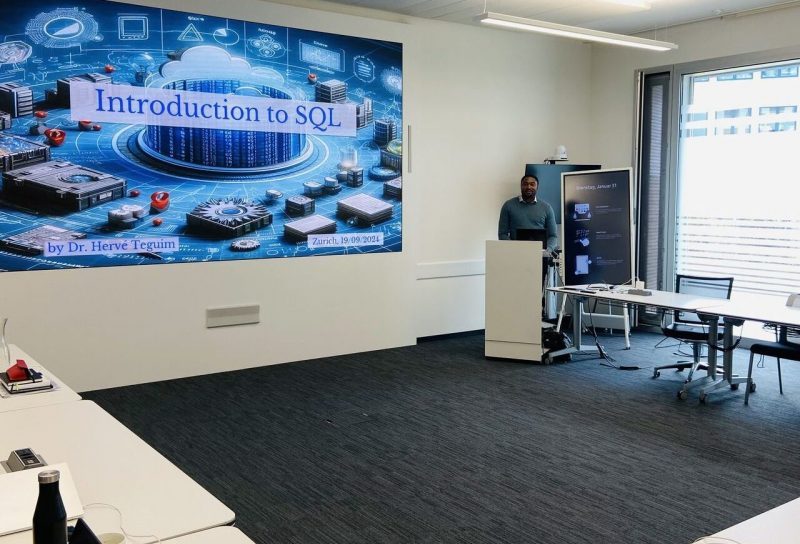Following the success of my recent Power BI training, I was excited to return to Samsung in Zurich, this time to deliver a hands-on course on SQL. In today’s data-driven world, SQL remains a critical tool for managing and querying databases, and I was thrilled to have the opportunity to help the Samsung team deepen their understanding of this essential language.
Unlocking the Power of SQL for Data Management
Structured Query Language (SQL) is at the heart of almost every data-related operation in business. Whether you are managing relational databases or analyzing large datasets, SQL allows you to interact with data efficiently and precisely. The course I delivered at Samsung covered the core principles of SQL, starting with an Overview of Relational Database Management Systems (RDBMS). Understanding the architecture and functionality of RDBMSs is key to grasping how SQL fits into the broader data ecosystem.
We explored how RDBMS structures data in tables, making it easy to manage vast amounts of information and how SQL serves as the primary language to query and manipulate that data. The participants were introduced to best practices in database design, which set a solid foundation for the more complex topics we covered later in the course.
SQL as a Declarative Language: Writing Efficient Queries
One of the most exciting aspects of SQL is that it is a declarative language, meaning that users specify what they want to do with their data, rather than how to do it. This contrasts with procedural programming languages, where you must define each step explicitly. During the training, I emphasized how SQL abstracts away much of the complexity, allowing users to focus on the end result.
Participants were guided through writing efficient SQL queries that could be applied directly to their work. We looked at query optimization strategies, particularly in scenarios where datasets are large and require performance tuning. This was especially relevant for Samsung, given the scale and complexity of their databases.
Diving Deep into SQL’s Core Components: DQL, DDL, DML, and DCL
The course was structured around SQL’s core components, which we broke down into four main categories:
- Data Query Language (DQL): This section focused on the basics of retrieving data using
SELECTstatements and filtering results usingWHERE,ORDER BY, andGROUP BY. The participants appreciated the depth of this segment, as retrieving specific subsets of data is crucial to their day-to-day work. - Data Definition Language (DDL): We then shifted focus to managing the structure of the database itself. DDL commands like
CREATE,ALTER, andDROPallow users to define and modify database schemas. Participants learned how to create and manage tables and how to make structural changes without compromising data integrity. - Data Manipulation Language (DML): Next, we explored how to manipulate data within existing tables. Commands like
INSERT,UPDATE, andDELETEwere demonstrated, showcasing how DML is used to modify data in relational databases. This section was particularly useful for the Samsung team as they manage dynamic databases with frequent updates. - Data Control Language (DCL): Finally, we discussed database security through DCL. Commands like
GRANTandREVOKEwere introduced, ensuring participants understood how to control access to data and maintain database security. In a corporate environment like Samsung’s, ensuring that data is protected and accessible only to authorized users is a top priority.
Practical Applications and Interactive Learning
What made this training particularly rewarding was the practical, hands-on approach. Participants had the opportunity to work on real-world scenarios, querying sample databases, writing complex joins, and practicing database management techniques in a controlled environment. By the end of the course, everyone had built their own sample databases, experimented with various query types, and learned how to troubleshoot common SQL challenges.
Strengthening the Foundation for Data-Driven Innovation
Helping Samsung employees enhance their SQL skills was an enriching experience for both me and the participants. SQL is a foundational skill for anyone working with data, and I’m confident that the knowledge they gained will empower them to handle their database systems more efficiently, extract valuable insights, and contribute to data-driven innovation within the company.
This course not only covered the essentials of SQL but also allowed the team to dive deeper into advanced querying techniques, database management, and security practices. I look forward to seeing how the Samsung team will leverage these skills in their projects and continue pushing the boundaries of what’s possible with data.

